Yu-Gi-Oh! MASTER DUEL, developed and published by Konami for the Xbox One, PlayStation, PC, Nintendo Switch, and mobile, is another take on their established IP Yu-Gi-Oh! that is currently celebrating its 25th anniversary. As for the online game on multiple platforms it takes inspiration from the physical card game and tries to introduce it into a more widely available audience. Moreover, this game is unlike most of Konami’s previous game such as the Yu-Gi-Oh World Champion series that focus on a detailed story outline stemming from the anime the accompanied the current format of the physical trading card game. Instead, the game focuses more on the online simulator portion with some minor story mode influences to introduce the player into the lore of some the cards trying to convey this level of care into the cards’ designs. This is further reinforced with small story modes in the single player option of the game allowing players to learn the lore behind the cards and how they play as a strategy.
The gameplay for Yu-Gi-Oh! MASTER DUEL is distinctly similar to the trading card game with some major benefits to the physical card game. One major one off the bat is the level of entry not being locked behind money or dependent upon friends to provide the player with a deck to participate. This game being a free to play has to make money for the company and it is through microtransactions that enable the player to purchase gems to open up packs that are randomized.
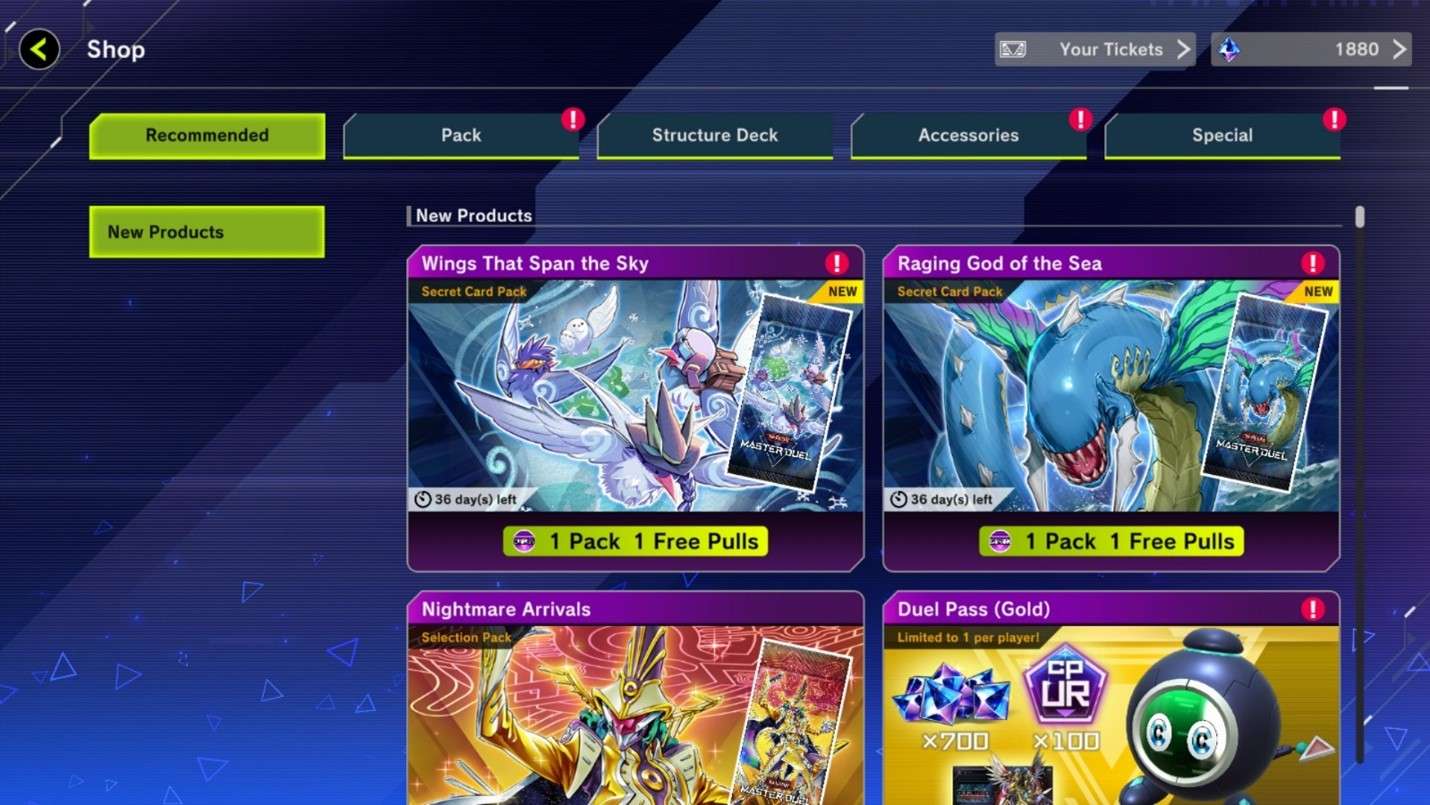
However, some packs have certain select cards that have a higher percentage chance of obtaining due to the pack itself being focused towards certain archetypes. As for how the game is played it is a turn-based strategy game were each player makes a deck of cards consisting of a minimum of 40 cards with a maximum of 60 cards. There are restrictions to the deck were a deck can have a maximum of 3 copies of a card, unless the card is on the ban list which can change the total copies of said card. In terms of what cards are in the deck it can be broken down simply into three overarching types such as monster, trap, and spell cards. Unlike Vanguard another card game with strict deck building, Yu-Gi-Oh! MASTER DUEL allows the player to mix and match different archetypes into a deck to allow for more personal freedom. Aside from the increase in personal freedom, the ability to choose allows for an increase level of strategy. Moreover, each deck can have something called an “extra deck” containing a maximum of 15 cards that involve one of the four “special summoning” methods.
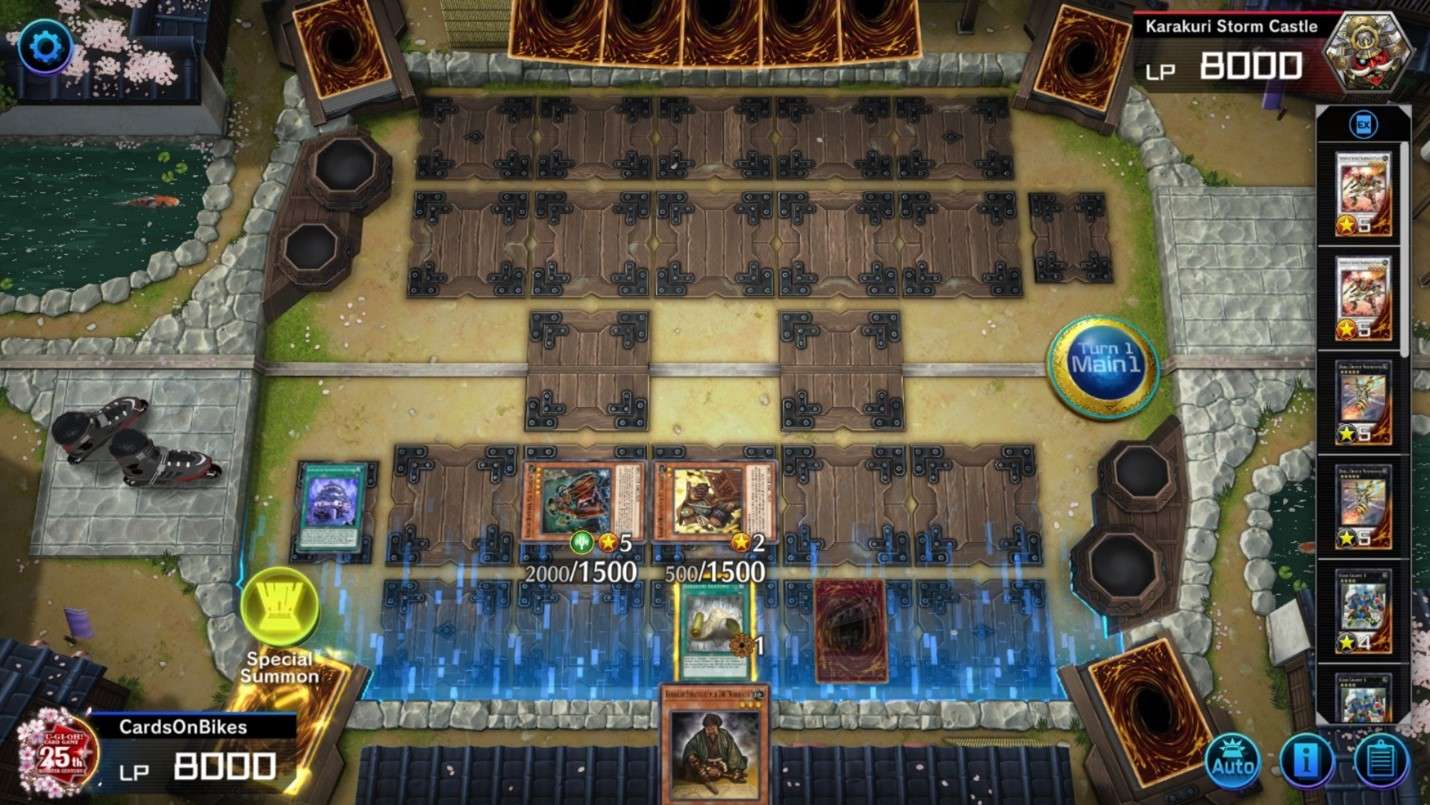
While these summoning methods are all special, they can be broken down into requiring two or more cards to facilitate the summon requirement. The tutorial simplifies the learning process of these summoning mechanics and it is then further reinforced with the various story missions in the single player.
While the game itself is mostly multiplayer it does provide a single player experience through the use small chapter like story missions. These story missions are small short stories that introduce the player into various styles of play while providing some context to the lore. This is in stark contrast to their previous story driven games which are based on the anime with the player character being a self-insert. However, in the case of Yu-Gi-Oh! MASTER DUEL it is more of a simulator with a small story mode attached onto it to draw in the player base to experiment with different archetypes.
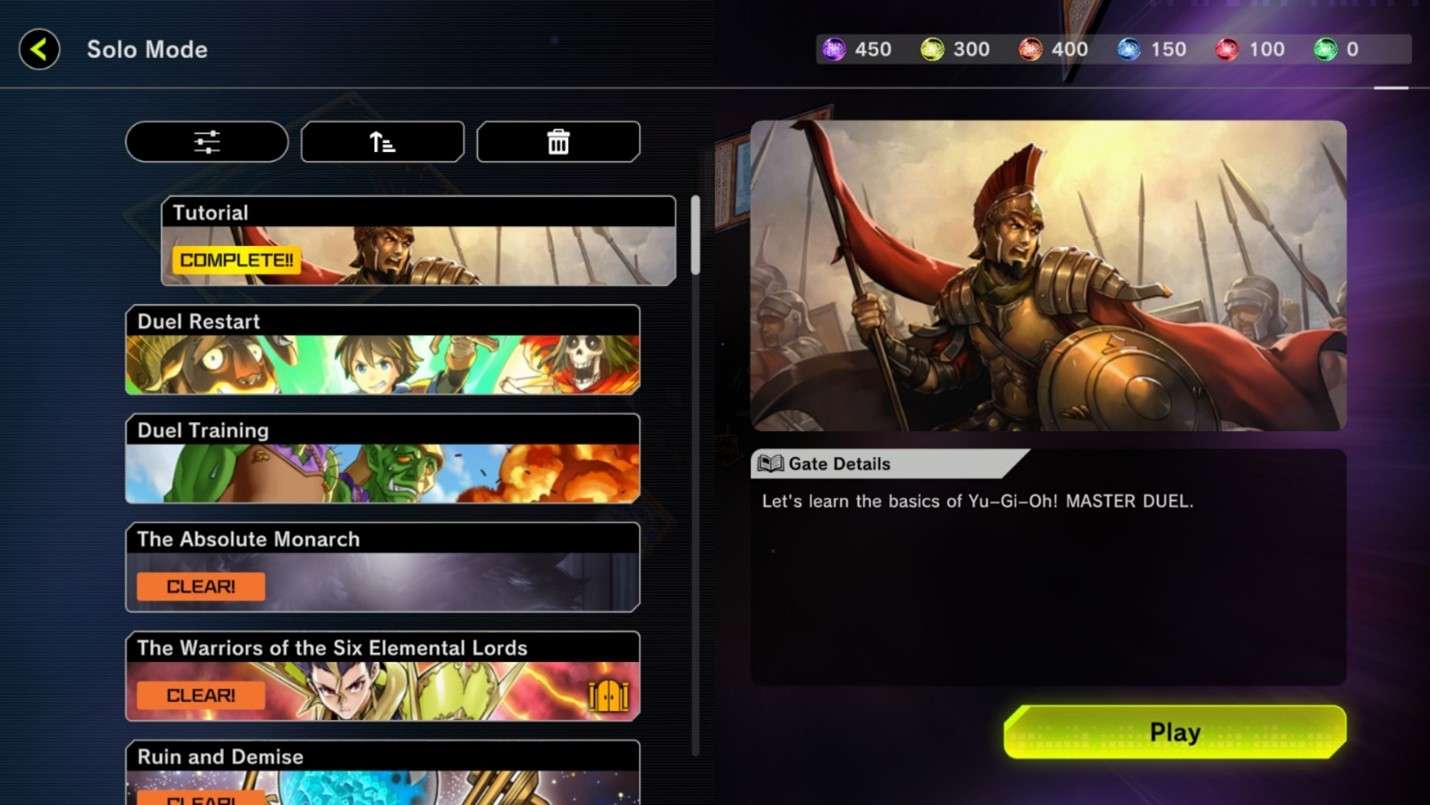
These archetypes can be broken down by the name on the cards and sometimes by the card effects in the text box at the bottom. Aside from that, these archetypes all play differently, intrinsically making them unique in how they play.
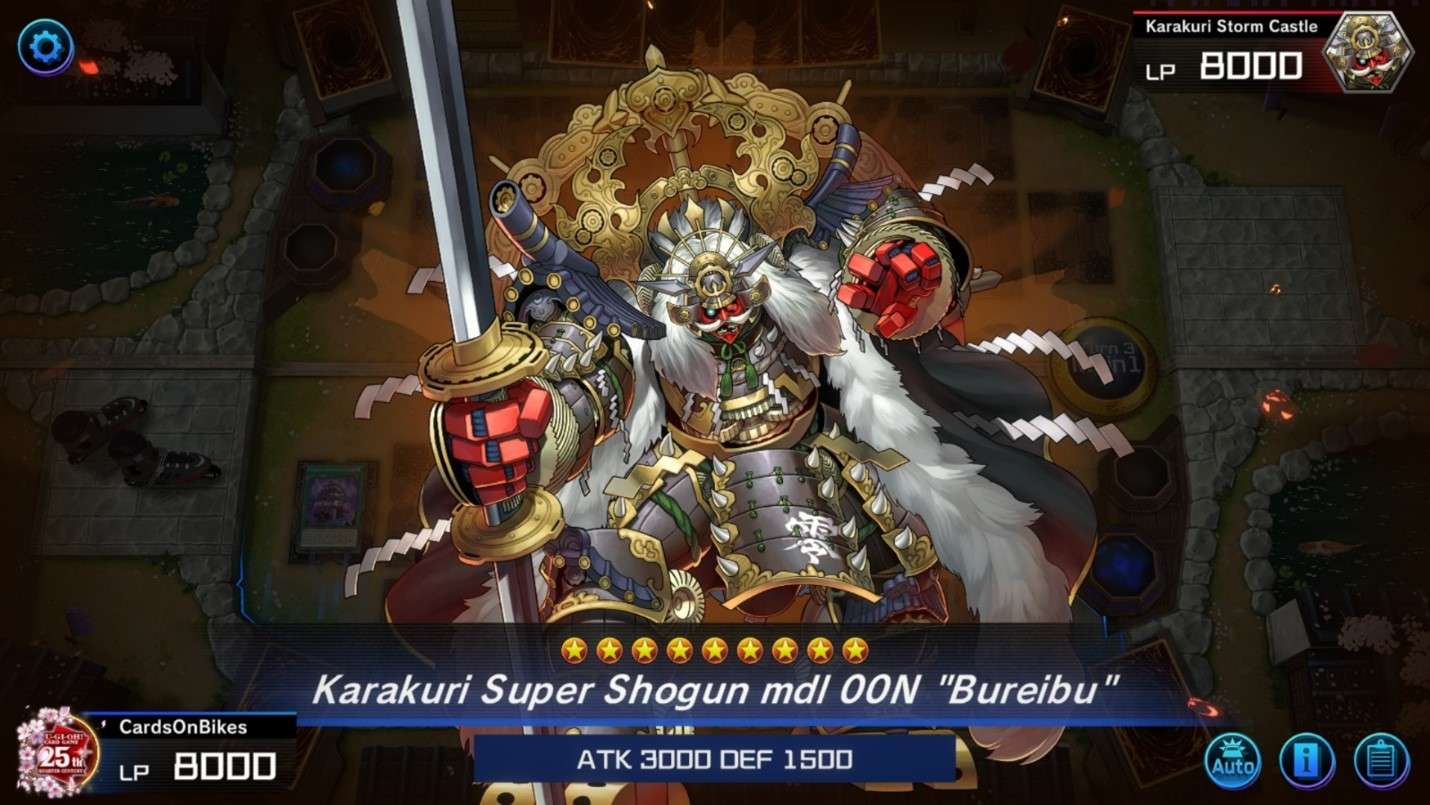
While that may seem like a daunting task in terms of learning the game, most of the decks can be described in the jargon for the community. Furthermore, the classification of some of these decks using jargon within the community can be described as, “Combo”, “Helmet”, and “Stun”. The first one “Combo” focuses on non-linear exponential combinations of cards to create strong monsters to overwhelm the opponent. This a complete opposite of “Helmet” which is simplistic and linear strategy that become more of a defend the castle. As for “Stun” it is more or less preventing the opponent from playing the game entirely by focusing on powerful traps, spells, and monsters that also inhibit the player using the deck. Most of these decks can be found in the single player experience with most showcasing their particular focus to one of the three deck types as previously mentioned. In addition to that, with the game being based on the physical card game some of the terminology is transmitted between the two as is a Yu-Gi-Oh! MASTER DUEL digital version.
In terms of how Yu-Gi-Oh! MASTER DUEL is a simulator for the physical card game is that it plays by the rules of the game extensively allowing players to experience a more streamlined experience. This is first accomplished by making the game free to play and can be played entirely for free as opposed to the physical card game. By making the game free allows for a wider audience to play the game and this is then boosted by the fact that it is released on multiple systems. Moreover, for those who are accustomed to the physical card game the switch from the physical card game to the digital one is a lot more simplistic with some nuances that come into play. An example for one of the nuances between the two stems from the use of hand traps where in the digital online format the opponent can have a response in their hand and it is highlighted by the system showcasing that they have it. As for the physical card game the opponent does not need to reveal the fact that they have a hand trap for the opponent until the moment they need to. This difference can be attributed to bluffing a similar tactic in poker forcing the turn player to play more cautiously. Moreover, this need to be, cautious is exemplified more in the physical card game more than digital version as the latter is more reliant on anticipating different scenarios.
Konami has made Yu-Gi-Oh! MASTER DUEL a good starting point for newer players and can be seen as an easy introduction into the physical card game. This is evident in the gameplay for the game being so heavily influenced by the card game making this a great game for friends who want to play the game but are too far apart. Aside from that, the single player mode for the game is bare bones and could use some more work to truly shine a little bit more by having an original story for the player to encounter. Overall, as a simulator the game performs its job as expected with some minor nuances stemming from the gameplay differences. However, Yu-Gi-Oh! MASTER DUEL is an 8/10 game due to the levels of depth in various strategies involved.
For more information, visit https://www.konami.com/yugioh/masterduel/eu/en/
Related: Reviews by Kyle Manila
I would describe myself when interacting with games as a strategist with a pension for stealth and loud explosions.



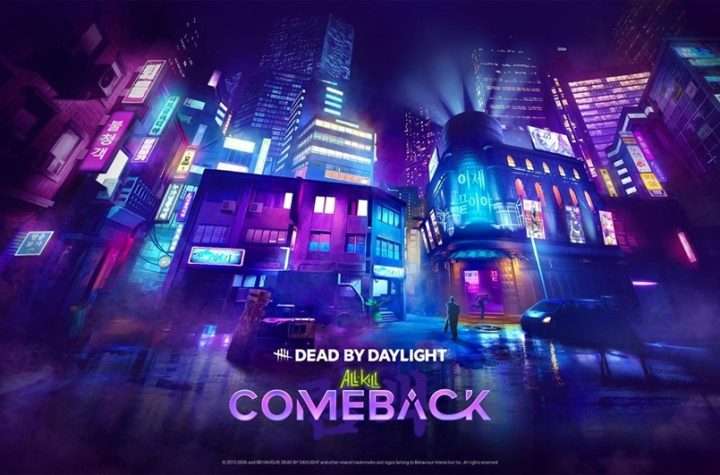
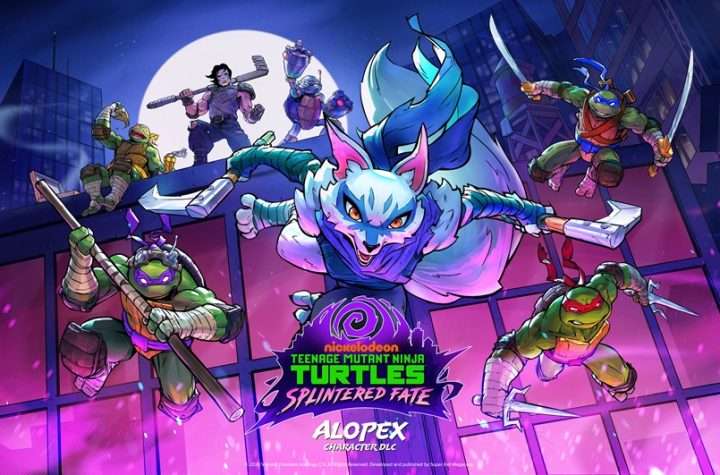
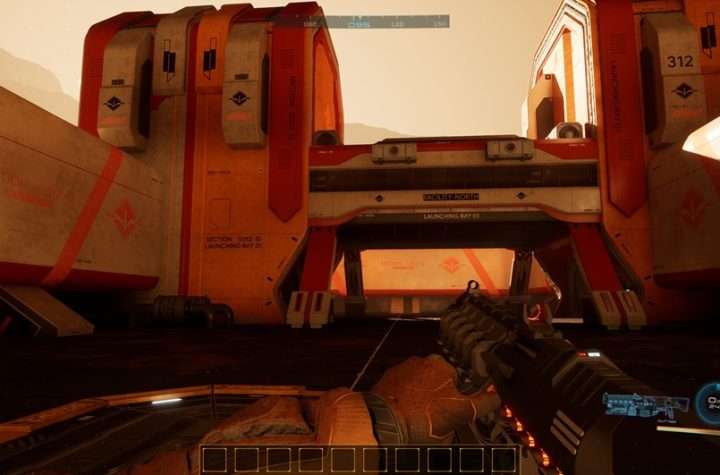
More Stories
WINDROSE Preview for Steam
Public Test Build for Dead by Daylight’s New All-Kill: Comeback Chapter Now Live
Teenage Mutant Ninja Turtles: Splintered Fate Launches New Alopex DLC